Memorial Day Safety Tips
- Get Prepared
- General Safety
- Current: Memorial Day
Memorial Day weekend is a busy time for the Hoosier State. From honoring those who gave their lives serving in the armed forces to family gatherings to attending the historic Indianapolis 500 race, the traditions of this holiday weekend are long. Gear up for summer by reviewing, sharing and following these safety tips.
Memorial Day Safety Tips
Quick Tips
- Grills should be placed well away from the buildings, deck railings, eaves and overhanging tree branches.
- Store fireworks in a cool, dry place away from the reach of children.
- Before a car trip, have a mechanic check the vehicle’s brakes, heater, defroster, tires and windshield wipers.
- Pay attention. If someone is attempting to drive drunk, stop the person and call a taxi service or loved one.
- Check weather forecasts daily, purchase an all-hazards weather radio and have multiple ways to receive weather alerts.
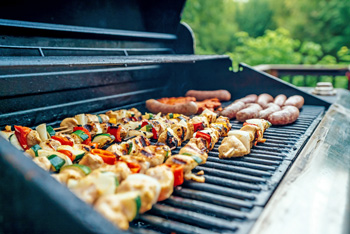
Outdoor Cooking
Cookouts are popular during Memorial Day weekend. These tips can help reduce the chances of a fire not just spoiling the food but damaging property or hurting someone.
- Clean grills by removing any grease or fat buildup before use.
- Inspect gas grills for leaks or breakages before use. If found, have a professional service the grill before using it again.
- Grills should be placed well away from the buildings, deck railings, eaves and overhanging tree branches.
- Avoid placing grills on dry grass or leaves. A stray spark could catch them on fire.
- Never leave an outdoor charcoal or gas grill unattended. Flames could become uncontrollable and start a large fire.
- If using charcoal starter fluid, never add it to a flame. The liquid can cause a flareup and injure someone.
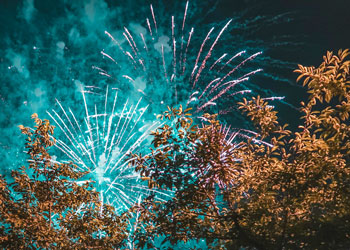
Fireworks
The U.S. Consumer Product Safety Commission compiles an annual fireworks report and finds that about half of emergency department-treated fireworks injuries happen to people younger than 20 years old, and 30 percent of fireworks injuries are to children younger than 15 years old. Injuries are most common to hands, head and legs.
If fireworks are planned for the festivities, keep these guidelines in mind:
- Never smoke or consume alcohol when lighting fireworks.
- Store fireworks in a cool, dry place away from the reach of children.
- Steer clear of others setting off fireworks. They can backfire or shoot off in the wrong direction.
- Do not attempt to make or alter any fireworks or firework devices.
- Always have a fire extinguisher or water supply, such as a hose or bucket of water, nearby.
- After a firework has finished burning, douse it with plenty of water before throwing it away to prevent starting a trash fire.
Note: Become more familiar with the state fireworks laws in Indiana. Also check local ordinances for any fireworks limitations that might exist in the area. More details available on the Fireworks Safety page.
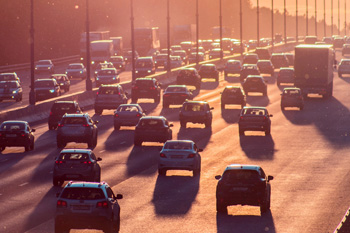
Travel
Stay safe away from home by taking some precautions:
- Before a trip, have a mechanic check the vehicle’s brakes, heater, defroster, tires and windshield wipers.
- Check weather reports on local news outlets and check the county travel status map before leaving.
- If traveling with children, remind them not to speak to strangers, and have a responsible adult be with them at all times.
- If flying, pay attention to and follow instructions shared by flight attendants. In case of an emergency, or to help prevent one, their instructions are important to follow.
- Make copies of important identification, such as passports and licenses, ahead of time to help the replacement process if they were to get lost while traveling.
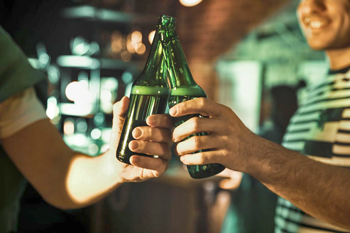
Safe Drinking
High temperatures and alcohol are not a good combination. Follow the tips below to help prevent alcohol poisoning and other injuries.
- Pace alcoholic drinks throughout an event, and consume a glass of water between every drink. Heat combined with alcohol dehydrates the body, making it more prone to heat illnesses and alcohol poisoning.
- Do not operate a grill or campfire while intoxicated. Alcohol can impair movements and mental faculties, which makes performing potentially dangerous activities even more risky.
- Pay attention to the surroundings. If someone is attempting to drive drunk, stop the person and call a taxi service or loved one.
- Never leave drinks alone or accept a drink from a stranger to help prevent the chance of consuming a drugged beverage.
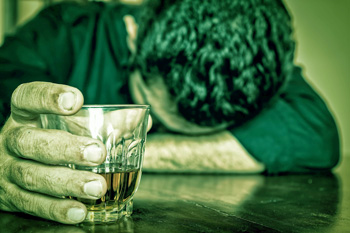
Alcohol Poisoning
Alcohol poisoning can be deadly. Symptoms and warning signs of alcohol poisoning vary based on a person’s sex, age, health, diet and how much alcohol was consumed. Keep an eye out for the following and call 911 immediately if someone who was drinking alcohol experiences these symptoms:
- Confusion
- Vomiting
- Seizures
- Slow breathing (less than eight breaths a minute)
- Irregular breathing (gap of more than 10 seconds between breaths)
- Blue-tinged or pale skin
- Unconsciousness (and cannot be woken up)
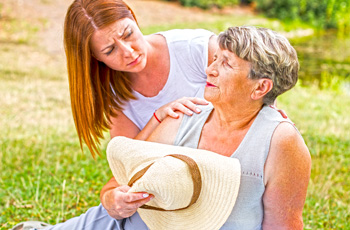
Extreme Heat
Overexposure to heat can be hazardous, and the humid conditions frequently experienced in Indiana can add to the discomfort and danger of high temperatures.
- Avoid strenuous activities when hot weather is expected.
- Stay hydrated and nourished. Drink fluids regularly, regardless of the activity level. Avoid sugary, caffeinated and alcoholic beverages because they increase the rate of dehydration.
- Take time to cool off. If possible, stay indoors in an air-conditioned building. If the home does not have air conditioning, spend time in an air-conditioned public facility. Check local news to see if there are any local heat-relief shelters.
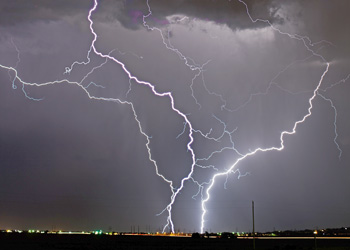
Thunderstorms
According to the National Severe Storms Laboratory, an average of 100,000 thunderstorms occur each year in the United States. The following tips will help the entire household be prepared for severe thunderstorms.
- Check weather forecasts daily, purchase an all-hazards weather radio and have multiple ways to receive weather alerts.
- If a thunderstorm is expected, postpone or cancel outdoor activities and monitor weather reports on radio, television, websites and social media.
- Look for fire hazards and beware of possible water, gas or oil leaks. Report broken utility lines to the appropriate authorities.
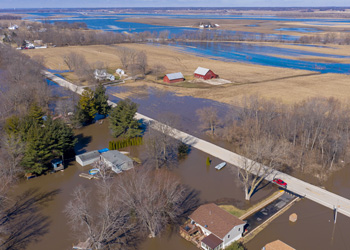
Flooding
A few simple steps can help protect an entire household in the event of a flooding emergency.
- Be aware of any nearby floodplains – flat areas of land near a body of water that is prone to flooding.
- Do not try to drive through water. As little as 2 feet can cause most cars to float, and as little as a few inches of moving water can wash away most cars. Turn around; don't drown!
- Pump out flooded basements gradually (about one-third of the water per day) to avoid structural damage.
Resources
Websites
- County Burn Ban Map
Indiana Department of Homeland Security - County Travel Status Map
Indiana Department of Homeland Security - Drunk Driving
National Highway Traffic Safety Administration - Fireworks Safety
Indiana Department of Homeland Security - National Weather Service Coverage
Indiana Department of Homeland Security
